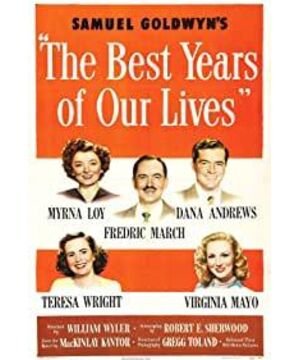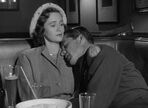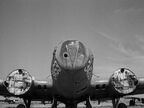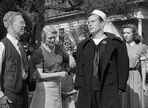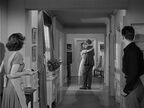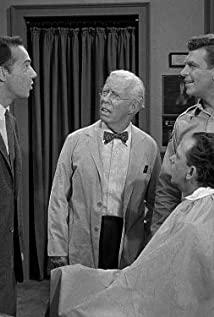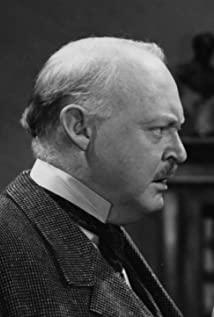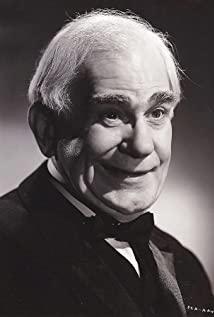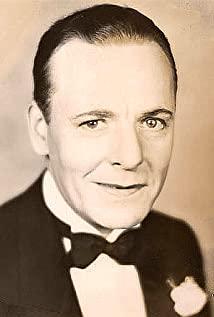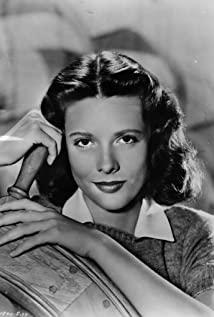"The Most Beautiful Time in Our Life" movie script
By/〔美〕Robert Sherwood
Translation/Chen Mei
Content description
The story describes three demobilized soldiers returning to their original city after World War II. Fred found that his wife who had been married in a hurry during the war was unfaithful to him and lost his job before the war, so he poured his sorrows with alcohol; Homer lost his hands and determined to restart his life with prosthetics; Al returned to the position of deputy manager. But he failed to adapt to a peaceful life. American director William Wheeler put it on the screen and won 7 Oscars in one fell swoop. This not only shows the success of the script, but also shows the director's skill.
The best time in our lives
Producer: Samuel Godwin
Director: William Wheeler
Original work: McKinley Kantel (the novel "The Glory Belongs to Me")
Play: Robert Sherwood
Photography: Greg Tolan
main character:
Al Stevenson as Frederick Maqu
Millie Stevenson Milna | Roy
Peggy Stevenson, Teresa Wright
Fred Ridanna Andrews
Marie Delvirginia Mayo
Homer Parish Harold Roussell
Velma Cameron Casey, played by O'Donnell
Duration: 172 minutes
The film won Best Picture, Best Director, Best Screenplay, Best Actor (Frederick Mart), Best Supporting Actor (Harold Roussell), American Academy of Motion Picture Arts and Sciences, Seven Oscars for Best Editing (Daniel Mandel) and Best Music (Hugo Friedhofer). In addition, Harold Roussel also won a special award.
fade in:
1.Interior view Wilborn Airport Daytime
A high-angle overhead shot of the terminal of the airport building shows the hustle and bustle of passengers, some people stand still, and some people walk through the screen.
Voice of Female Announcer A: Please pay attention. U.S. westbound flight No. 9 is now boarding. Passengers on Flight 9 are requested to board at Gate 3 and the plane will take off immediately.
Most of the passengers in the picture left after hearing the notice, and a map of North America centered on the United States of America appeared on the ground of the terminal, which was inlaid with colored tiles on the ground. After a while, the map is empty. Then two legs stepped into the picture from the "Atlantic", with officers' trousers and air force boots on them. Two legs entered the United States in the "New York area" and stopped somewhere in the south of the "Great Lakes" area. Obviously, the two-legged owner couldn't decide where to go. He finally put down the bulging old backpack dedicated to the B-1 bomber on his back. (He has six ribbons inlaid on his left sleeve) The canvas of the backpack has the owner's name printed in a template: Captain Fred Delhi; the center of the backpack is printed with his number: 0-727090. After the backpack was placed on the ground, the camera pulled back and then moved down to a normal height. A full-body shot of Fred Delhi appeared. He stood in the terminal and looked around. The people in the terminal were busy with their own affairs. No one noticed Fred, no one noticed his British flight jacket embroidered with military emblems and wings, and no one noticed the honor list on his chest: There are four battle star medals, purple heart medals, eight sets of air force medals, a set of flying merit crosses, silver star medals and British flying merit crosses, and so on.
Voice of Female Announcer B: Incoming passengers on the sixth flight of the United Airlines, please pick up their luggage at the airport frontage. In five minutes, there will be buses to take passengers to downtown Wilborn.
Fred looked at the service desks of several airlines and the map of the United States at his feet, but found nothing. He picked up his backpack, walked through "Newfoundland" and "Iceland", stood outside "England", and asked the girl at the service desk something (note: no dialogue can be heard). The girl was busy listening to the phone, making notes, and was still answering another customer, so she pointed the pencil in her hand to the outside of the picture on her right to answer Fred's question. Fred smiled, picked up his backpack and walked out of the picture on the left side of the screen.
2. Panorama · Inside the airport
Fred entered the frame from the rear perspective on the right side of the frame and walked through the crowd towards the camera. He couldn't decide where to go: He was the only soldier in the crowd, incompatible with this busy civilian environment.
Voice of Female Announcer A: The 102nd flight of the Eastern Route arrives at Hong Kong-the departure station of the flight is Miami, and arrives at Hong Kong via Jacksonville, Atlanta and Nashville.
Fred walked to the center of the foreground and looked to his left. He obviously saw the place he was looking for and walked out of the painting from the right of the picture.
3. Zhongjing·Airline Service Counter
The camera passed by the busy staff from behind the service desk, and aimed at the passengers in the airport. A middle-aged man with a briefcase is arguing with a waitress behind the counter. (Fred enters the picture from the left as they conduct the following dialogue) The girl is also busy answering calls, taking notes, answering questions, etc.; but she still appears polite and well-trained.
Man (impatiently): Ten thirty? I'm going to eat--
Waitress: I'm sorry, sir.
Man: ——Your office in the city just called me to come to the airport.
Waitress: I'm sorry, sir. The weather is not good. The plane was delayed for two hours.
Man (makes no secret of his displeasure): Where is the phone? I have to ask who is responsible for this mess.
Waitress (pointing with her finger): Where is the phone, sir.
After the man left, Fred approached the service counter.
Fred (to the waitress friendly): He has to ask who is responsible for the bad weather.
4. Close shot Fred and the waitress
The phone rang. The girl smiled routinely at Fred and picked up the microphone.
Waitress (to Fred): This will greet you, sir. (To the microphone) I'm EO No. 6-the ticket number is 137,568, and the passenger name is Becker, who flew on the 14th. Okay, I'll call you back. (To Fred) What's the matter, sir?
Fred: Do you have a plane to Boone?
Waitress: Boone City-there are three flights a day, sir, but there are no seats available now. Would you book a flight ticket?
Fred: Okay.
Waitress (raising a pencil): Your name?
Fred: The last name is Delhi, D-E-R-O-Y, and the name is Fred. How long do you have to wait?
Waitress: We may be able to get you a ticket for Flight 37 on the 19th.
Fred: The nineteenth! I said, girl-I can't wait so many days. I have just returned from overseas and I am anxious to go home.
Waitress: I'm sorry, sir, there are too many people booking air tickets.
Fred: Understood—
He stood for a while, not knowing what to do next. A quick-tempered man squeezed over and greeted the waitress over his shoulder.
Acute man (Mr. Gibbons): I said, my secretary arranged for me to pick up the ticket at the airport. My name is Gibbons—George Gibbons.
The man's voice was harsh and annoying, and Fred turned his head to look at him.
Waitress: Yes, Mr. Gibbons. The ticket is here. Will you weigh your luggage?
Gibbons (for Frederick): I'm sorry, please give in.
Fred: I'm sorry, I blocked you.
He gave way to Gibbons, and Gibbons struggled to move a bag full of golf clubs to the scale placed in the middle of the service counter. Fred stared thoughtfully at the pile of golf clubs. When the waitress handed the ticket to Mr. Gibbons, she looked up and saw Fred, and in an instant, she showed a little human touch.
Waitress: You should try ATC (Note 1), Captain.
Fred: (Hearing these kind abbreviations, there is a joy on his face): ATC! That's fine-where is it?
Waitress: After leaving the airport, turn right and go through the open space. (To Gibbons) Your luggage is sixteen pounds overweight, Mr. Gibbons.
Fred picked up his backpack and started painting from the right side of the screen.
Gibbons: Oh, that's nothing, how much?
5. The camera moves to follow Fred's profile. He walks through rows of large glass windows from left to right, through which we can see the planes on the airport. The people going back and forth between the camera and Fred, on the whole show a busy scene.
6.Exterior view · Wilborn Airport · daytime
Fred passed by a giant Skymaster airliner with his backpack, the camera shakes. A group of passengers in casual clothes were boarding the plane, and Fred realized the difference between himself and these passengers. He saw something and stopped.
7. Medium shots · Flatbed trucks at the airport
The flat car drove towards the camera.
8.Medium shot Fred
He blew a whistle and beckoned to the car for a ride. The car drove into the picture, but went away. Fred grabbed his backpack again and continued on foot.
Into:
9.Exterior view·Air Transport Service Department Airport·Daytime·Fred's mid-range view
Fred walked towards the airport building, the backpack in his hand seemed to be getting heavier and heavier. The ATC airport building is decorated with the military emblem of the Air Transport Service Department and the words "Air Force Air Transport Service Department". An army soldier or two and a sailor were killing time in front of the building. Fred passed by them and walked into the airport building.
10.Interior view·ATC airport building·daytime·medium view
The camera was aimed at the door, and Fred pushed the door to enter. There is a clear contrast between the luxurious decoration of the airport and the civil airport. Everyone here is dressed in military uniform: Army, Navy or Marine Corps; the passengers here are not in a hurry, they have learned how to wait from years of experience, so they all have an air of resignation. Benches and chairs are not enough, so some people stand while others simply use luggage or coats as pillows and lie on the floor. Fred walked into the room, and a waiting army greeted him informally.
Sergeant: Hello, Captain...
Fred: Hello, Sergeant.
Fred found an empty place along the wall where he could put his backpack. When he walked towards this place, he had to cross the legs of a person sitting against the wall. He was Homer Parrish, a second-level mechanical sergeant who was now putting his hands in the blue. Color short top pocket. Fred put down his backpack and put his coat on it. Obviously, he feels more at ease in this environment than in the fashionable civilian airport just now.
The announcement of ATC Sergeant: Flight 93 to Denver, San Francisco and Seattle. Flight 93 to Denver, San Francisco and Seattle...
Fred saw a few people around him walking towards the service desk hopefully.
11. Zhongjing·ATC Service Desk
The camera swept across the shoulders of the service desk sergeant and aimed at the soldiers in the waiting room. A corporal stood in front of the information desk waiting to check in for the flight. Several passengers of Flight 93 approached the service counter.
Sergeant ATC: ...The flight is cancelled for some reason, please wait for notification.
The few passengers who were about to board the plane turned away in disappointment, venting their dissatisfaction with the chaos in typical military vulgar language. This ATC sergeant is very different from the courteous waitress on civil airlines. He is a small tough guy who doesn't worry about anything. He turned to the corporal who was waiting for registration. (During their conversation, Fred entered the screen and approached the service desk)
Corporal: Is there a plane to Detroit, Sergeant?
Sergeant ATC: No. How about going to Cleveland?
Corporal: Cleveland... (decided categorically): Yes.
Sergeant ATC: Fill in all of them.
The corporal grinned at Fred, and Fred had walked to the front desk now, waiting for his turn.
Corporal: Looks like I have to go to Cleveland.
Fred: That place is good.
Corporal (submissively): That's true too. But my family lives in Detroit.
Fred (to ATC Sergeant): Hi, Sergeant. Is there a chance to get me to Boone City?
Sergeant (looking at Fred's ribbon): Not at the moment, sir, but if you fill out a form, I will greet you whenever I have a chance.
Fred: Okay... I have to wait anyway.
He started filling out the form. There was a sound of plane passing by outside. The corporal completed the form and handed it to the sergeant.
Sergeant ATC: The business here is terrible. Six months ago, this stall was all ours. Fifty military planes helped civilian planes. It's transferred now. Everything is "restoring".
Fred (looks up and smiles at him): Are you complaining?
Sergeant ATC: That's not... (takes the form filled out by Fred)... I just want to know when I will be "restored".
12. Double lens centered on Fred
Fred smiled. Sergeant ATC looked at Fred's form.
Sergeant ATC: Alright, sir, I will greet you when the time comes.
Fred: Thank you, buddy.
Fred walked back to where he put things. Hearing someone's greeting, he looked out of the painting.
Someone’s voice: I said, guys...
13. Medium shots and crowd shots
A technical sergeant of ATC stood in front of a large crate. The box indicated that the piece needs to be sent by air. The sergeant greeted several soldiers nearby, including the sailor Homer Parrish.
Technical sergeant: ... Please help me, I have to get this thing on the plane.
The three soldiers stood up and walked to the crate, but the sailor remained motionless. One of the soldiers looked back at him disapprovingly.
Private: What's the matter with you, sailor? What's the matter if you are tired?
Fred entered the screen and looked at the sailor curiously. The sailor didn't reply, but looked straight ahead.
14. Middle and close shots of Fred and the sailors
Fred sat down and started flipping through a magazine, glancing at the crate-carrying men outside the painting from time to time. We heard voices coming from outside the painting.
Voice: Have you got your hands on it, Jack?
Voice: It's done, go hard on your end.
Voice of the technical sergeant: Yes, lads... let's go over here.
Vocal (jokingly): Ouch, my back pain!
The sailor was still sitting motionless.
15.Interior view·ATC airport·afternoon·panoramic view
There was not much movement in the waiting room. Some people were lying at the table writing letters, some were sleeping, and a few others were reading.
Sergeant ATC (loudly): Delhi...
16. Medium and close shot Fred
He lay on the ground and fell asleep, with his field backpack under his head.
Voice of ATC Sergeant: Delhi! (Pauses) Captain Fred Delhi!
Fred woke up and responded as if he heard a roll call.
Fred: Yes! coming!
He took his backpack and walked towards the service desk. Now we hear again--
Voice of Sergeant ATC: Parrish. Homer Parish!
17. Close shot Homer
He stood up.
Homer: Come!
18. Zhongjing·ATC Service Desk
The camera passed the ATC sergeant and aimed at Fred who came up.
Sergeant ATC: Are you Delhi? (To Homer who came first) Are you Parish? (The two answer separately) There is a B-17 at the moment being loaded, and it is going to Boone City. (The two are very happy to hear that) You may have been on the plane for a long time, because there are more ups and downs in the middle, and you won't be able to arrive until tomorrow afternoon. it's OK?
Fred: Hi, this is great.
Homer (smiling): No!
Sergeant ATC: Okay-sign here, Captain.
Fred took the pencil from Sergeant ATC.
Fred (said while signing): It's great to go home. (Hands the lead laugh to Homer) It's your turn, Homer...
Homer raised his right hand to take the pencil.
Sergeant ATC (pushing the form towards Homer): Sign... on the dotted line.
He couldn't help but pause when he saw Homer had no right hand. But Homer is learning to skillfully use his manipulator-the hook. Fred stared at his hook intently.
Sergeant ATC: I will sign for you...
Homer (takes the pencil, smiles kindly): What's wrong. Do you treat me as illiterate? Do you think I can't spell my name?
Sergeant ATC: I...I just thought...
Homer: I understand, Sergeant. thanks.
Homer raised his left arm and held the paper. There is also a hook on the left.
19. Two shots Fred and Homer
Fred reacted very strongly to Homer’s hook. On the one hand, he had a bad impression of Homer when Homer didn’t help carry the crate. On the other hand, he had a bad impression of Homer. "It's great" this sentence does not seem to refer to occasion.
Sergeant ATC: Let's board the plane now. Get up in a while.
Fred (to Sergeant ATC): You are right. Thank you. (When he and Homer pick up their respective luggage, he wants to show friendship) Is home in Boone City, sailor?
Homer: Yes, Mr. Captain.
Fred: Don't mention military rank. I retired.
He saw Homer struggling to pick up his seaman's backpack, but knew that it was best not to help him at this moment.
Fred: Where do you live in Boone?
Homer: West Seventeenth Street. Do you know where Jackson Middle School is?
Fred: Needless to say.
Homer: Just two intersections from middle school.
The two people left the camera and walked forward towards the exit, their voices gradually disappearing.
Included in:
20. Location · A B-17 bomber · Daytime
The B-17 was painted olive green, the fuselage was painted with combat records, and there were numerous bullet marks-it was in stark contrast with the "Constellation" airliner wearing silver on the apron on the opposite side. Fred and Homer approached the plane. Fred patted the plane affectionately-it was also a veteran of the war against Germany.
Fred: This little guy really did it-the 15th Army, the 93rd Group, based in Italy. I once worked with them during a shuttle bombing.
Homer: Have you stayed in Italy?
Fred: No. I am in the UK.
Homer: Oh. I really want to visit Europe one day.
Fred helped Homer board the plane.
21. Interior · B-17's cockpit
Fred and Homer climbed into the cabin. Obviously, Fred entered B-17 as a fish in water. Al Stevenson lay on the floor with his backpack pillowed. He shot Fred with his eyes. Al himself is a technical sergeant of the 7th Infantry Division, wearing a battle emblem, a ribbon with three Asia-Pacific Theater stars, two ribbons with the Philippine Liberation Star, and a bronze star medal.
Fred: Hello, Juntu. My name is Fred Delhi.
Al (sit up): Al Stevenson.
The two shook hands.
Fred: This is Homer... what's your last name, Homer?
Homer: Parish.
Al: Nice to meet you.
Homer: Nice to meet you, Sergeant.
Homer held out his hand. Al didn't even look at the hook, just reached out and shook Homer's forearm.
Homer: Are you Boone's too?
Al: Of course.
Fred (to Homer): I said, buddy. Before take-off, let’s get into the telegrapher’s cabin. After take-off, go to the front of the plane to take a good look at the lovely old America. (To Al) How long have you not been home?
Al: It has been for centuries.
Into:
22. Aerial view of American rural land
A beautiful panoramic view of farmland, simple and idyllic: plowed land, scattered farmhouses and barns, cattle herds on pastures...
23. Interior view·B-17 nose·medium and close view·daytime
Homer looked at the ground enthusiastically through the plexiglass in the nose of the aircraft. Al approached him. Fred had just walked into the nose of the plane. He showed the strength of being familiar with the road, and lay down to start the long journey.
Homer (overlooking): Oh my god... ah, awesome! Hey! Look at that!
Al leaned over and looked down. (Note: Al and Fred can't treat Homer who has lost his hands casually at this moment. Both of them can do not appear to be overly caring, lest Homer feel uneasy, but they are still shocked. .Especially when they saw his elated and energetic energy when he was flying, and the scenery on the ground, they were even more touched when they thought that he was returning to his hometown)
Al: What did you see?
Homer: Look at that farm. It is authentic enough: there are cows in houses, barns, and backyards.
Fred, lying on his back, couldn't help but smile when he saw Homer's simple excitement.
Fred: Is this your first time sitting on this stuff?
Homer: Yes. This is my first time flying. Oh, I see people flying a lot. I am in an amphibious boat, the kind of flat top... (turns to Fred)
24. Anti-shooting three-person lens·Synthetic screen
The camera passes over the three persons and shoots the vast expanse of the sky through the plexiglass. We feel like being in space. (Note: The synthetic screen must include part of the wings and engine as seen from the side angle)
Homer (to Fred): ...but I never imagined that everything would look so beautiful from such a height. (Pauses, then looks down) It's so beautiful.
Fred: I never thought of that. This place was originally my workplace.
Al: You are a bombardier, right?
Fred: Yeah. (Pointing to it) This is where the bombing sight was originally set. I stayed on my knees in this place for a long time.
Al: Do you pray?
Fred (laughing): Including prayers. (He is reluctant to talk about the subject again, and draws out a pack of cigarettes) Do you smoke, Homer?
Fred didn't know if Homer could catch the cigarette with the hook, so he held the pack of cigarettes to Homer's lips.
Homer: It's okay, I can hold it.
He hooked up a cigarette with a hook. Fred turned around and passed the cigarette to Al.
Al: Thank you.
Fred touched the match in his pocket, but when he reached the match, Homer had reached him with a lighted match.
Homer: Hey, I have fire, Captain.
He lit two of Fred and Al's cigarettes, and he stopped suddenly when he was about to use the match to light his own.
Homer: Don't you taboo? (Note 2)
Al and Fred (sincerely): No, no! Of course not taboo! You order!
Homer (laughs): I can't be taboo.
He extinguished the burning match and struck another one. Al and Fred looked fascinated. Homer looked up at them and couldn't help laughing.
Homer: Man, I should show you my ability to open beer bottles.
Al: You really don't have to worry about yourself.
Homer, thank you.
There was silence. Fred looked at Homer's ribbon.
Fred: You have seen enough battles.
Homer: No... I haven't seen many battles. I mean...not as you see it.
Fred (laughs): Are you a lie?
Homer (seriously): No... My location is the repair shop under the deck. Oh, I have participated in many battles, but I have never seen anything. I have never seen a Japanese soldier, nor have I heard the cannonball coming towards me. When the ship sank, I only saw the fire and heard the explosion, ordering us to go to the deck and dive, and I was burned. When he woke up, it was on a cruiser, with both hands gone. I came here easily after this.
Al: Easy!
Homer: That's it. They took good care of me. They trained me to use this stuff. I can make a phone call-I can drive a car-and I can stuff coins into the jukebox. I can do anything except...
He was a little embarrassed and couldn't continue.
Fred: What's wrong, sailor?
Homer: Yes-I have a girlfriend.
Homer looked down at his hook.
Fred: She knows what happened to you, know?
Homer: Ah, of course I do-the family knows it all. But they didn't know this thing was like this.
Both Fred and Al realized that Homer was so optimistic on the surface, but deep in their hearts they were very frightened by their disability.
Al: What is your girlfriend's name, Homer?
Homer: Velma. We are middle school classmates.
Al: I dare say that Velma must be a good girl.
Homer: Of course.
Fred: Then it's okay, boy. You wait and see.
Homer (nervously): Yeah, just wait and see. Velma is just a little girl. She had never seen hooks like this...
He realized that he had talked a lot about his personal affairs. Besides, he didn't want to let others worry about his own affairs, so he turned and looked at the plexiglass machine head.
Homer: That's great. Let me tell my family about this trip when I get home. You know, I am the first one in our family to fly. Al and Fred smiled.
Into:
25. Location·B-17 Flying at Night·Panorama
B-17 flew forward steadily.
26. Interior · B-17 Cockpit · Homer's mid and close view
Homer slept on the floor of the cabin, pillowed with a pile of parachutes. The camera slowly pans to the telegrapher’s cabin. The picture includes part of the deck in the foreground and Al and Fred in the telegrapher’s cabin in the background. They took advantage of the existing conditions to settle down comfortably. A beam of moonlight poured into the cabin from the window. The camera slowly moved closer to the two following their conversation.
Fred (thinking): I said, Al-do you remember the feeling of going overseas?
Al: It's almost as clear as remembering my name.
Fred: My heart is tight, a little trembling...
Al: ...because I don't know what will happen, and no matter what happens, you also know that it won't be a good thing.
Fred: If I say something irrational, try not to laugh...
Al: It's a deal.
Fred: I feel the same right now, but it's even stronger.
After a pause, Al looked at Fred curiously.
Al: I understand what you mean.
Fred (laughs): Probably because I was at a loss after retiring.
Al: What I fear most is that everyone will ask me to get back to the original state.
Fred (laughs): I just want a good job-a decent future-a small house that can hold me and my wife. With all of this, I can live and work in peace... (Snaps a finger)
Al: I think you are not very demanding.
Fred: Are you married, Al?
Al: It's over.
Fred: How long has it been?
Al: It's been twenty years.
Fred (with a whistle): Twenty years! We had been together for less than twenty days before we set off. I married a girl while training in Texas.
Al looked at him as if he wanted to hear his own account, but Fred stopped there.
Al: Yes-now you and your wife can have a chance to get acquainted with each other.
Fred: Yeah—(look at Homer)—I don’t know if Homer and his girl can solve it?
Al: Velma. I hope Velma is a good girl.
He looked at Homer outside the painting.
27. Feature Homer
Homer fell asleep lying on the floor.
28. Feature Fred
Looking at Homer, thinking seriously.
29. Close-up Al
Looking at Homer with the same concern. Then turned back to Fred.
Al: Well—I think I should sleep for a while.
30. Two shots · Al and Fred
The inside of the telegraph cabin is contained as much as possible except for two people in the lens.
Fred: It's time to sleep, Al. Good night.
Al settled down. Fred reached out and turned off the light on the console. The only light is the moving moonlight. After a period of silence, it came—
Al (sighing a sigh): Tomorrow night—
Fred: Don't say it.
31. Night sky (data lens)
A spectacular night scene in the clouds.
Into:
32. Early morning aerial scenery (data lens)
The same magnificent clouds, the sun is rising in the background.
33. The interior scene of B-17, early morning
Homer's close-up shot, he looked at the dawn, not knowing what a new day would bring him. Thinking of Velma, he was on his mind. (Note: The two states of 32 and 33 have to be switched repeatedly) Homer looked at Al and Fred who were sleeping, looked at the sunrise, and finally closed his eyes and tried to sleep again.
fade out.
fade in:
34. Aerial bird's eye view of Boone City·Afternoon
A panoramic view of the city appeared in front. We looked at this city and couldn't help wondering who could have feelings for such a city. Its most prominent feature is that it has no characteristics at all and is very general. This is a city with a population of hundreds of thousands, just like any typical small city in the Midwestern United States.
35. Interior view·The nose of the B-17·Afternoon·Al, Fred and Homer
They were obviously very excited when they watched their hometown come on.
36. Aerial shots of Boone City·Afternoon
The aircraft lowered its altitude, and the panoramic view of the city was raised accordingly.
37. Interior view·B-17 nose·Three shots·Al, Fred and Homer
The three of them looked down intently, and they were excited by the familiar scenery. Fred put on his headphones and talked to the driver into the microphone of the walkie-talkie.
Fred: How long do you plan to land? (Listening) I said, how about going around the city? Let us look at our hometown. (Listening for another moment) Thank you. (To Al and Homer) Before landing, he asked us to take a sightseeing tour.
Homer: Great!
38. Aerial shots
When approaching the airport, looking down from the nose of the aircraft, we saw hundreds of fighter jets of various types lined up, waiting to be destroyed.
Al's voice: Oh my goodness!
Homer's voice: I have never seen so many planes in my life!
Fred's voice: They are going to be destroyed. Oh my God, how many battles we can fight with these I machines in 42. The pilot said that this plane was flying for the last time. It has performed eighty-five missions in Europe, and it's time to enter the cemetery.
39. Location·B-17·Afternoon
A panoramic view of the moving plane.
40. Three Shots·Al, Fred and Homer
They looked down. (This shot is cross-edited with the scene they saw)
Fred: Look at that disguised factory! That is the Balden Aircraft Factory.
Al: Where is it? How can I not see.
Homer (excitedly): Hey! Look! The court at Jackson Middle School. I only need to earn a dollar for every ball I pass.
Fred: Not a single crater! Not a single house was destroyed! (Pause) This is the country club-people are playing golf-as if nothing happened. (Pauses again) Everything is still the same.
Al (sullenly): It's hard to say.
Fred looked at Al, then looked down again, and understood what he was referring to. At this moment, the plane turned to the left, the lowered landing gear appeared behind the camera, and the plane was about to land.
Fred: Come on, we have to go back to the cockpit when we land in a while...
Turn out.
41. Exterior Boone City Airport
Panoramic shot of B-17 landing.
Turn out.
42. Exterior · Boone City Airport On · Afternoon
panoramic. From under the wing of the B-17, over the landing gear and an engine to shoot the Boone Airport Building. There is a very conspicuous sign in the picture, which is hung on a fence tied with iron wire in front of the airport building. The sign reads: "Welcome to Boone City". We heard that the last engine of the B-17 was turned off as the picture was turned into, and the propellers gradually stopped turning. Al, Fred, and Homer are on the right side of the screen, each leaving the plane with their luggage and walking towards the airport building. In the background, there is a taxi parked on the left side of the building. As he walked, Fred turned his head and beckoned to the pilot in the cockpit of B-17, expressing his gratitude for the trip.
Into:
43. Exterior Scene·Tree-lined Avenue·Afternoon
A taxi drove along the boulevard.
44. Interior · Inside the taxi · Afternoon (synthetic screen)
Fred, Al, and Homer looked out of the car window, their expressions as excited as they were when they looked down from the bomber's nose just now. But what they see now are common little things.
They first passed the aircraft factory.
Fred: This is the place in disguise.
Al: I can see it clearly now. (Pauses) Nothing happened.
Driver: This is from the B-29 bomber, but it closed six months ago.
Al: As for the people who worked here before. Where did it go?
Driver: Where do I know, buddies.
The next one passed the field, "Boone City Beavers Home".
Homer (to the driver): I said, how did the Beavers do this season?
Driver (unwillingly): I took the sixth place.
Fred: It's still the second-tier team. Nothing has changed in this old city.
The third place they passed was the cemetery.
Al: There is still birth, old age, sickness and death here.
The fourth place is a street, and many people are standing on the grass in front of their simple houses.
Al: The locals look very friendly...
Fred: Yeah. Be kind to each other.
Al: ...and there is no "no entry" (Note 3).
No one spoke for a while after this. They passed many places again, and the three of them were overwhelmed, and music expressed their feelings instead of dialogue. We heard the melody of "My Lovely Home" from the soundtrack. The orchestration was not overly sad, but it conveyed the feeling of the music.
The fifth place is the familiar fire station.
In the sixth place, an old guard stopped the taxi at the intersection so that the pupils could cross the road.
The seventh place is a Ford car with the roof removed, driving two mischievous middle school students (and their girlfriends).
The eighth place is the bus stop. On the waiting bench, there are two high school girls who are 15 or 16 years old wearing socks.
The ninth place is a shop in the business district, crowded with people shopping for things.
The tenth place is the "Boqi Restaurant" on a street in the city.
Homer (suddenly very excited): Hi! It's Boqi Restaurant! (Holding out his head and looking around from the rear window) Great! Birch installed neon lights. (To Al and Fred) Have you been to Birch House? (The two smiled and shook their heads) It was driven by my uncle Birch Angel. It's just that people in our family think he is not decent enough because he sells spirits. But this is the best pub in the city.
Fred: Let's get there every day for a drink. How is it, Al?
Al: Good idea.
Homer (to the driver): Turn east on Seventeenth Street.
Driver (familiar with the terrain): That's right.
The taxi turned a corner.
Homer (to Al and Brother Reid): I live on this street.
The street is very quiet and tree-lined, and the simple old houses are located behind small green spaces.
Homer lost his vigorous expression and showed nervousness.
Homer: I don't know if Velma is at home or not.
He stared at his hooks suddenly instinctively. He was scared.
Al (pats him on the shoulder): Don't worry, kid.
The driver slowed down and checked the house number
Driver (read the number): It's 1517.
Homer: The fourth one from here.
The car drove past and stopped. Homer suddenly felt a panic. He didn't want to get out of the car right away to deal with all this.
Homer: I said! The three of us drove back to Birch Restaurant, and then-how about drinking two glasses together. Then go home.
Al (sympatheticly): You're home now, boy.
45. Location · Homer's Home · Afternoon · Panorama
The house number 1525 is painted on the curb. Parrish’s house is the typical medium-sized wooden house on the backstreet built thirty years ago: the exterior wall is yellow, it should be repainted somehow, the front porch is very spacious, but I don’t know why it’s in the front. Sharp ornaments are installed on the sides and sides, and it takes a few steps from the garden to climb the front porch. Between Parrish's house and Cameron's house next door, a gravel driveway is the boundary. There is also a low bush growing on the edge of the driveway.
The Cameron’s house is very similar to the Parrish’s. There is a swing hanging on the porch, and some clothes are hanging on the side of the porch. There is a flowerbed in front of the porch, and a few tulips and daffodils have just bloomed.
When Homer got out of the car, there was no movement at Parrish's house. Suddenly, Homer's little sister Luela rushed out from the front door. After seeing Homer, her face was full of joy. (She is about nine or ten years old)
Luela: It's Homer! (She turns around and yells desperately at the people in the house) Mom! mother! dad! It's Homer-Homer is back!
Excited and unable to control herself, she rushed to the other end of the front porch and yelled louder towards the house next door.
Luela: Velma! Velma! come! Hurry up, Velma! Homer is back!
Luela took only three steps and rushed down the steps to embrace Homer in two steps.
The Parrish couple also came out, and the family dog Jinx also rushed over to join in the fun. Homer was surrounded by his family, and no one thought of his hands at this moment.
46. Close shot Jinx
Jinx was so excited that he even peeed when the little master came back.
47. Middle and close shots next to the taxi
Fred and Al sat in the car and looked at Homer outside the painting to be reunited with their families.
Driver: Where is the next stop?
Al: Wait a minute, buddy.
48. Velma House
She ran out of the house next door and faced the camera. She is a slender eighteen-year-old girl with a pale face. She was wearing a sweater with a navy badge on the sweater—it was for Homer. She ran to the grass of Parrish's house. Stopped very close to the camera and stared at Homer outside the painting.
49. Medium and close shot Homer
He wanted to pat Jinx, but was stunned when he saw his girlfriend.
50. Medium shot Velma and Homer
He stood still, his arms hanging at his sides. She walked slowly to him, their distance getting closer and closer.
Velma: Hello, Homer.
Homer: Hello, Velma.
She has come to him. They stared into each other's eyes, but he didn't greet him, and his arms lay motionless on the sides of his body.
Suddenly, Velma quickly walked over, put her arms around him, and kissed him.
Homer's arms were motionless, and the hooks pressed against the sides of his body.
51. Feature Verma
She hugged Homer.
52. Feature Homer
Velma's head rested on his shoulder. He still pressed the hook to his body, he couldn't use his arm to hug his girl.
53. Everyone Lens
Parrish and Luela looked at the pair.
54. Middle and close shots in a taxi
Al and Fred looked at Homer and Velma outside the painting. After a while, Al leaned forward to the driver.
Al: Yes, let's go.
The driver starts the car.
55. Everyone Lens Homer's Family
The camera passes over Homer to take pictures of the whole family, with the taxi in the background. The sound of the car's motor made Homer turn around to look at the car. He watched the car drive away—he had a look of despair in his eyes, as if this car represented his last connection with the world he was familiar with. He raised his arm to bid them farewell. This was the first time he showed the hook in front of his family and Velma. They looked at him nervously, and immediately stopped turning their gazes—the only exception was Mrs. Parish.
56. Close shot Mrs. Parish
She stared at Homer's hook intently.
57. Everyone Lens Homer and the whole family
In order to disperse the embarrassing flying atmosphere, Mr. Parish leaned over to carry Homer's luggage.
Homer (in a sharp tone): No! No need. I will mention it myself.
He hunched over his luggage with a hook. Mrs. Parish couldn't take it anymore. She wanted to stay calm, but her heart was breaking at the moment, and she couldn't help sobbing loudly.
58. Medium and close shot Mrs. Parish
She couldn't control herself. The upset Homer walked to her, trying to comfort her.
Homer: It's okay, mom—don't cry.
Mrs. Parish (still crying): No—nothing, Homer—
Mr. Parish (tuck Homer's arm gently): Your mother is so happy to see you go home.
Turn out.
59. Interior · Taxi Ne · Fred and Al (synthetic screen background)
The car goes through the residential area. No one has spoken since they left Parrish's house. In the end it was Fred who broke the silence.
Fred (knowing that it is not appropriate): I really admire the navy if I want to say it. They really let him practice how to use this hook.
Al: But they didn't let him practice to put his arms around his girl-stroke her hair...
There was silence, and the atmosphere was heavy. Al turned to Fred and said.
Al: You know-we should keep in touch with this guy.
Fred: Yes.
Driver: I said, buddy, are you turning here?
Al: It is here. Thirty-seventh Street, Forty.
The car turns. Now Al showed signs of anxiety.
Al (to Fred): I said, Fred, let me see you off first.
Fred looked at him understandingly, and despite a smile on his face, he said in an indisputable tone:
Fred: No, it's yours. (Pauses) Don't even try to hide in Birch's restaurant to have a drink.
Al: I feel like the ship is going to run aground.
60. Exterior view, apartment house, panoramic view
The taxi drove to the gate and stopped.
61. Inside the taxi, close-up view
Al opened the door and got out of the car and took out his duffel bag.
Al (standing on the sidewalk): Right here-I'm home.
Fred stuck his head out to admire this luxurious building.
Fred: Your room is really good. I said, what do you do-are you a bootlegger who quit?
Al: I'm not doing such a prestigious business. I'm just a banker. (He reaches into his pocket to the driver) How much should I pay for the car?
Fred (snarling): Take your hand out, sergeant. My military rank is higher than you. Report to your family and follow their orders in the future-I will take the taxi.
Al: Yes, sir. Mr. Captain!
Fred (zealously): Good luck, buddy.
62,.Exterior view, apartment house, middle view
Al closed the car door, took a step back, and made a military salute. Fred returned the courtesy. The taxi started, and Al stood on the sidewalk to watch the car leave.
63. Interior · Inside the taxi (synthetic screen)
Fred turned his head and looked out the rear window of the car and saw Al standing on the sidewalk watching the leaving car. The full picture of the apartment building appeared, and Al's figure gradually became smaller accordingly. Fred felt that Al represented the last part of his military life-but since Al lived in such a magnificent environment, they would not have much contact in civilian life in the future.
The car turned on the corner.
64. Exterior view, apartment house, middle view
Al waved at the taxi, and the car turned around and disappeared. He lifted his luggage and walked through the door of the house.
65. Interior view, lobby in residence, middle view
Al walked straight to the elevator door deep in the hall. A hall attendant in uniform stood up angrily from behind the service counter.
Waiter: Please wait a moment.
Al continued to walk towards the elevator.
Waiter (screaming): Please wait a moment.
Al stopped and turned around, only now did he realize that the waiter was yelling at him.
Waiter: Who are you looking for?
Al (laughs): Looking for Mrs. Stevenson.
He went to the elevator again.
Waiter (angrily): Wait a moment! (He picks up the insider cable, decisively) I have to inform the visitor first.
Al (Xia Mingjin): Put down the live tube! I am her husband.
Waiter (eyes widened, disbelief): Are you Mr. Stevenson?
Al (correct him): Sergeant Stevenson. Who do you think I am? (Laughs) Is it a four-star general?
Al walked towards the elevator. The waiter looked at his back somehow, but didn't reach for the microphone again.
Included in:
66. Interior view · corridor · afternoon
Al walked along the corridor to the door of his apartment. He hesitated for a while, put his sweat-stained hands on his pants and wiped them dry, settled down and rang the electric bell.
It was Rob who opened the door, he was a clever, sturdy boy of thirteen or fourteen. Rob looked at his father and opened his eyes wide after recognizing his father. As soon as he was about to yell, Al covered the child's mouth with his hand and stepped into the house by himself.
67. Interior view · Stevenson apartment doorway · middle view
Al looked at the end of the long narrow corridor.
Al (lowered his voice): Where's mom?
Rob can only point to the direction. Al put down his bag and walked down the corridor.
Peggy came out of the kitchen with a plate of meatballs and mashed potatoes in his hands. She is a beautiful girl who is capable and independent. She is wearing a plain dress and an apron, making her look natural and pretty.
She and her father suddenly met and almost fell off the plate in their hands. But Al-hand caught the plate quickly. She also opened her mouth to shout.
Al (stop her): Where's mom?
Peggy's beautiful eyes suddenly burst into tears, and she pointed to the living room. Al walked towards the living room.
68. Interior·Living room
The living room is not big, but it is comfortable and elegantly decorated.
Through the floor-to-ceiling windows, we saw a small balcony connected, and Millie was putting plates on a card table to prepare dinner. It was sunset. There were three chairs at the table. Millie looked young, charming and energetic.
Millie: Who rings the doorbell? (She looks back at the living room) Peggy! Rob! who is it……
She suddenly understood it intuitively. Al has been in her thoughts all these years, she always fantasizes about the scene when he walks in through that door.
She slammed the plate in her hand and walked to the floor-to-ceiling window in the living room. She saw Al walking through the corridor into the door on the other side of the living room.
The two stood still for a while, looking at each other, looking at each other with some doubts like a pair of strangers. The atmosphere is silent and tense. Al sullen face. Millie's face was a little panicked. Al finally walked slowly through the living room and out of the balcony through the floor-to-ceiling windows. He hugged her tightly, almost rudely hugging her into his arms.
After a while, Al left Millie a bit and looked at her. She stroked her hair embarrassedly, and smiled softly and uneasily.
Millie: I—I’m just not like...
Al: Who said that?
Millie: You shouldn't have come back so suddenly...
Al (release Millie): I called from Portland...
Millie: That's true. But you said you have to wait for several days before...
Al: I'm lucky. I took a plane to Wilborn--and then took...
Millie: How are you, Al?
Al: Of course. Are you OK?
Millie: Of course I'm fine. (Laughs unnaturally) Let me see you, Al.
Al: Don't look at it now. I have to take a bath and shave.
Peggy walked into the room. She looked at Millie and Al quickly, and felt that the situation was very cramped. She wanted to ease the atmosphere, so she walked to Al and put her arms around her father. Rob came in too, and he looked at Al curiously and thoughtfully.
Peggy: Mom, if you don’t care... (She kisses Dad passionately)
Millie: I—I’ll call Kenworth’s house and tell them we’re not going to their house tonight.
Al: Kenworth's house? What do they do?
Millie: We met them last year. It's pretty likable. Peggy and I had planned to go to their house to play bridge. You will like this family.
Al thought he would not like the Kenworth family. Millie went to call. Al looked at Peggy for a while, then at Rob.
Al: My daughter—my son. I can't even recognize you anymore, what happened?
Peggy (laughs): It's just a few years of normal growth... Don't you agree?
Al: I—I can’t tell. (Partially joking, half-seriously) I will spend more time getting to know you guys.
Millie (calling): Hello? ……Oh. Alice... I'm Millie... It's a shame that we can't come tonight. (Al looks at her, she also looks at him, at a loss for a moment) I mean...I'm so happy...you know...Al...my husband...go home. Just came home. Yeah... Yeah... Yeah...
Her voice was a little choked, as if she was about to cry.
69. Exterior, panorama, and foreground are arched borders inlaid with branches and leaves
Fred is paying for the taxi. After paying the fare, he carried his backpack and bag and walked towards his father's house. The camera panned, revealing the decay scene Fred had seen.
When Fred approached his father Pat Derry’s house, he stopped and changed hands. The camera shot over his shoulder and shot him looking at the house. Then he walked under the clothesline full of clothes. Go to the house.
70. Exterior view. Pat Delhi's house. Front door. Four or five o'clock in the afternoon.
Fred rang the doorbell while scraping the dirt off his shoes. There was a somewhat squeaky noise from Hordance from the door.
Hordance (Voiceover): Ah-well-I'll open the door.
Hordance opened the door and was stunned to see Fred. She was a fat blond woman about fifty-five years old. She was wearing a short, small black skirt and a very dirty apron—she was cooking dinner. After seeing Fred, her heartfelt joy made her tired and declining face glow with brilliance.
Fred: Hello, Hordance!
Hordance: Freddie! (She shouts outside the painting) Pat! It's Freddie! Freddie is back!
Fred possessed and hurriedly kissed her on the forehead, then walked into the living room from childhood.
71. Interior view of the living room of Pat Delhi's house
Pat Delhi was sitting in the only easy chair in the room reading the evening paper, which published the latest softball scoring record. He was a little man with tears in his eyes, he was in his sixties, he was wearing an underwear, a pair of dirty trousers, and slippers. There was a bottle of gin and a half-full glass on the table beside.
Fred looked at his father and couldn't help thinking, "I don't even remember what he looked like. I know he looks terrible, but I can't remember how terrible he is."
Fred: Hello, Dad.
Pat looked at Fred. He is already blinded, and he can't immediately connect this handsome young officer in reality with his son in distant memory.
Hordance: Pat! Can't you say a few words with your own son?
Pat: Hello, Fred. Nice to meet you, my child.
Pat began to cry, making Fred very embarrassed. He thought: "God knows, why is he doing this?" But Hordance admired this moving scene, and hurriedly approached Pat and gently blamed him with a voice full of maternal love.
Hordance: What's wrong, Patrick Derry-you old sentimental fool, you can't do it! You are like a crying doll, what do you want Fred to do? Look at him, Pat! Look at your hero's son. Look at the beautiful ribbons on his chest. Come, come, Fred. Tell your father about the origin of these ribbons.
But Fred's gaze shifted to the kitchen, and the supper dishes left out in the cold were already overheated on the stove.
Fred: She—where is she?
Hordance: Who is where?
Fred: Mary. Did she go out?
Pat stopped crying when he heard Mary's name. He looked at Hordance, which meant to say: "Explain to him!"
Hordance: She's not at home, Freddie.
Fred: Will she be back later?
Hordance: Yes, Freddie—she won’t live here with us now. She rented a house in the downtown area.
Fred: Why didn't anyone write me to tell me this?
Hordance: We are all worried that this will upset you, besides, you are so far away. But after Mary got the job, it was too inconvenient for her to live in such a quiet place...
Pat: But we passed your letter and allowance to her...
Fred: Did she work? Where?
Pat: A nightclub. I don't know which one it is.
Hordance: This hard-working girl has to work all night.
Fred: Where does she live?
Pat: Weijing Building, 224 Pine Street.
Hordance: There is nothing to worry about, Freddie. Mary is fine. We saw her here during Christmas last year. The present she gave us is quite likable.
Pat: Mary is a nice girl.
Fred: Do you know when she goes to work?
Pat: It usually starts at dinner.
Fred was embarrassed to discuss all this with Pat and Hordance. He looked at his watch and put on his backpack.
Fred: I put down the big luggage, okay? I will pick it up later.
Hordance: Of course it does. You put it down, I've packed all your clothes out long ago... Can't you stay a while and eat your food before leaving, Freddie?
Fred: No, thank you, Hordance. Goodbye, Dad, I'll come to see you.
Pat: You are back, we are all happy, my boy.
Pat looked teary again.
Fred: It's a pleasure to come back.
Fred walked out quickly before taking advantage of his father's emotional impulse again.
72. Location·Weijing Tower·Dawn
Weijing Tower is a dilapidated building with neon lights.
Fred approached and looked at the building in frustration. He walked to the entrance, which was a glass door leading to a small deserted porch. He twisted the door and it was locked. He looked for the doorbell and found that it was an apartment with mailboxes and buttons for each household. He could not find Mary's name. Had to search it again and found the "Manager" button. He rang the doorbell under this name.
After a while, the steward came out and opened the door. He only wore a shirt, describing it as sloppy and sharp. A napkin was tucked in the fat waistband. He was not happy that someone came to disturb him during the meal. Throughout the scene, he kept chewing on the contents of his mouth and chewed on the chicken legs held in his hands from time to time.
Fred: I am looking for Mrs. Fred Derry.
Director: Delhi? Mary Delhi.
Fred: Ah, that's her. I am her husband.
The manager stopped chewing.
Director (pause): She is not at home.
Fred: So, what's the button number on her house?
Manager: Three C. (Seeing Fred going to press the button) It's useless if you press it. she went out.
Fred: When does she usually leave work?
Director: Where do I know. The residents here don't report the work hour meter.
Fred: Where does she work?
Director: Don't ask me. You say you are her husband. You should understand better than me.
Fred: I just came back from overseas.
The manager stopped chewing again.
Director (pause): Oh.
His hostile expression turned into an expression of pity.
Fred: I'll come back. One more thing, buddy. I might think of slap your mouth sometime.
The steward swallowed sharply this time and hurriedly closed the door. Fred left the Weijing Building, furious.
73. Interior·Small Restaurant·Weeping
This is an inferior restaurant opposite the Weijing Building. The camera shot from the window out of Fred walking across the street towards the restaurant. He stood outside the door and looked at it for a while, then opened the door and came in. The lens is pulled back. He saw a tattered phone book on a table under the telephone on the wall. He picked up the phone book and went to sit down at the wine counter.
Waiter (until Fred sits down on the high stool): What do you eat?
Fred (opens the phone book): What do you have?
View more about The Best Years of Our Lives reviews


